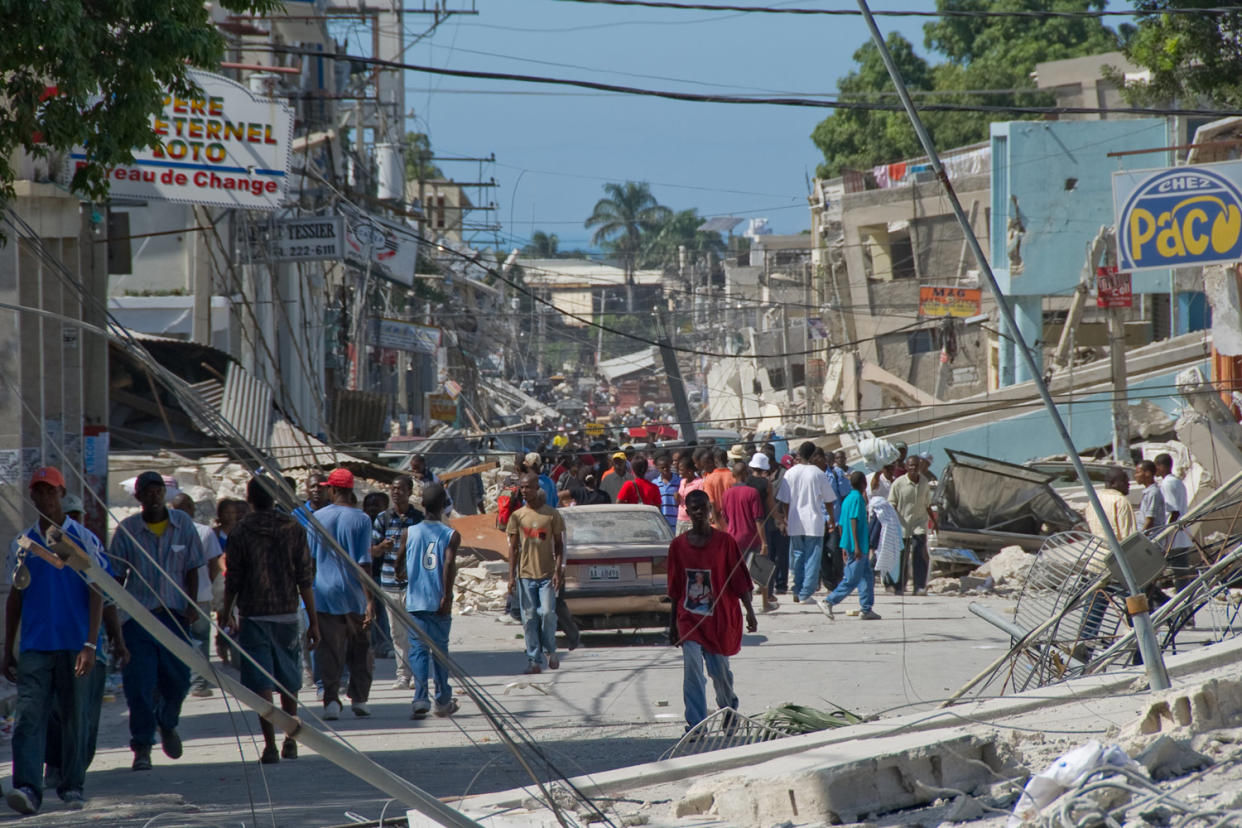Tens of thousands of Haitian earthquake victims face deportation from the US after visa scheme is scrapped

The Trump administration is ending a programme that has allowed 60,000 Haitians to move to the US after a devastating earthquake shook the Caribbean nation in 2010.
The Homeland Security Department said conditions in Haiti have improved greatly, so the protected status will be extended just once — until July 2019 — to give Haitians time to return home.
“Since the 2010 earthquake, the number of displaced people in Haiti has decreased by 97 per cent,” the department said. “Haiti is able to safely receive traditional levels of returned citizens.”
Campaigners claim the Trump administration has unfairly singled out the most vulnerable as part of its tougher stance on immigration.
House Democrat leader Nancy Pelosi said: “Deporting tens of thousands of men and women back into the nation will only deepen the suffering in Haiti… I completely disagree with the characterisation that the situation in Haiti has improved.”
The Temporary Protected Status programme of temporary visas covers 435,000 immigrants from 10 countries ravaged by natural disasters or war.

There are varying estimates of the death toll of the 7.0 earthquake and its aftershocks. The Disasters Emergency Committee said more than 200,000 people were killed, while The Haitian Government estimated the tally was about 300,000.
Rony Ponthieux, a 49-year-old Haitian nurse with temporary residency who has lived in Miami since 1999, said, "This isn't over, this is time we get to fight for renewal, not to pack our bags." She has a daughter and a son born in the United States and another son in Port-au-Prince.
"We need to push Washington to provide a legal status for us with TPS," Ms Ponthieux said. "This is anti-immigrant policy."
Advocates for Haitians quickly criticised the decision, arguing the conditions in the island nation have not improved nearly enough for Haitians to be deported.
Florida Representative Mario Diaz-Balart, a Republican, expressed "strong opposition" to the measure and urged the administration to reconsider.
"Forcing them to leave the United States would be detrimental," he said in a press release. "Almost eight years later, Haiti remains in total disarray and still requires much rebuilding."
Amanda Baran, policy consultant at the Immigrant Legal Resource Centre, called the termination of the status a "heartless decision" and said the Trump administration has no plan in place for the US-born children who may now lose their Haitian parents and caregivers to deportation.

 Yahoo News
Yahoo News 
